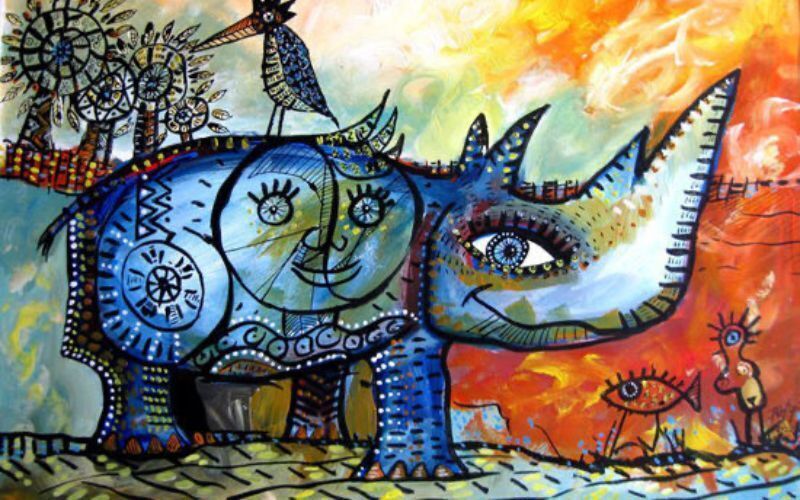Just One Thing: Accept Dependence
by Rick Hanson
Want to try a little experiment?
Stop breathing. Really. For a few seconds, maybe a few dozen seconds, and see how it feels.
For me, this experiment is an intimate way to experience a deep truth, that we live dependently, relying on 10,000 things for physical survival, happiness, love, and success.
For example, within half a minute of no air, most people are uncomfortable. After one minute, they’re panicking. After four minutes, they’re brain-dead or severely damaged. Second by second, your life and mind require oxygen, the plants that “exhale” it, the sun that drives photosynthesis, and other stars blowing up billions of years ago to make every atom of oxygen in the next breath you take. Or think about the people you rely on—the touches, attention, and caring—or the medicines, wisdom teachings, civil society, technologies, or your own good efforts last year that you profit from today.
It’s kind of freaky and frightening to know that we live dangled by 10,000 vulnerable threads, many of which could be cut at any moment. On the other hand, opening to this truth can silence the lies of unwarranted self-criticism. Of course we need others, of course the underlying causes and conditions have to be present to succeed at anything, of course we can’t grow roses in a parking lot. We are frail, soft, vulnerable, hurt by little things, and hungry for love. When you let this in, you’re not so hard on yourself—or others.
Accepting dependence brings you into harmony with the way it actually is. All things, from gophers to galaxies, arise and pass away in dependence on all other things. Dependence is nothing to be ashamed of, in spite of our culture’s hyper-emphasis on independence. Hearing the voice of someone you love, eating a strawberry, or taking a breath, realizing your dependence brings you into an almost ecstatic gratitude when you see that the 10,000 vulnerabilities are actually 10,000 gifts.
How?
Consider some of the many things you depend on. Imagine that for the next year you leave all your doors unlocked, give up a favorite food, and don’t speak with any friends or family. Let it sink in that you use or need many people and things each day. Try to have a matter-of-fact attitude about this, knowing that this is true for everybody, not just you.
Then look in the other direction, and recognize how so many others depend on you. They’re affected by how you smile, your tone of voice, and whether you pick up milk on the way home tonight. When I see this myself, it makes me feel good: I’m connected rather than isolated, and I’m someone who makes a difference. It also makes me feel more tender and kindly toward others.
Much as people depend on you, you depend on you. The you that you are today has been gifted in thousands of ways, large and small, by previous versions of yourself. Like runners in a great relay race, you hand the baton each day to the you who wakes up the next morning. Think of some of the many things that earlier you’s have contributed to your life: problems solved, goals accomplished, dishes done, relationships nurtured, lessons learned. It’s simple and powerful: silently thank them. How does this feel?
Looking forward, consider how your future you depends on what you do today. Not as pressure, but tenderly, let it land that your future you is counting on you, right now. What will be important to this being that you will become? What could you do this year, this day, that would set up this future person—in his or her middle age or old age—to live with safety, health, happiness, and ease?
Last, be honest with yourself about your own needs, and the things that make a difference for you. What would be good to nourish or shore up? Paradoxically, the more open you are to the humility of dependence, the more straightforward you are about watering your personal fruit tree.
Rick Hanson, Ph.D., is a neuropsychologist and author of Hardwiring Happiness, Buddha’s Brain, Just One Thing, and Mother Nurture. Founder of the Wellspring Institute for Neuroscience and Contemplative Wisdom and a member of the Greater Good Science Center’s Advisory Board, Dr. Hanson has been invited to speak at Oxford, Stanford, and Harvard, and taught in meditation centers worldwide. He has several audio programs and his free Just One Thing newsletter has over 75,000 subscribers.
His Greater Good blog features posts from Just One Thing (JOT), which offers a simple practice each week to bring you more joy, more fulfilling relationships, and more peace of mind.
See article from source:
Just One Thing: Accept Dependence

